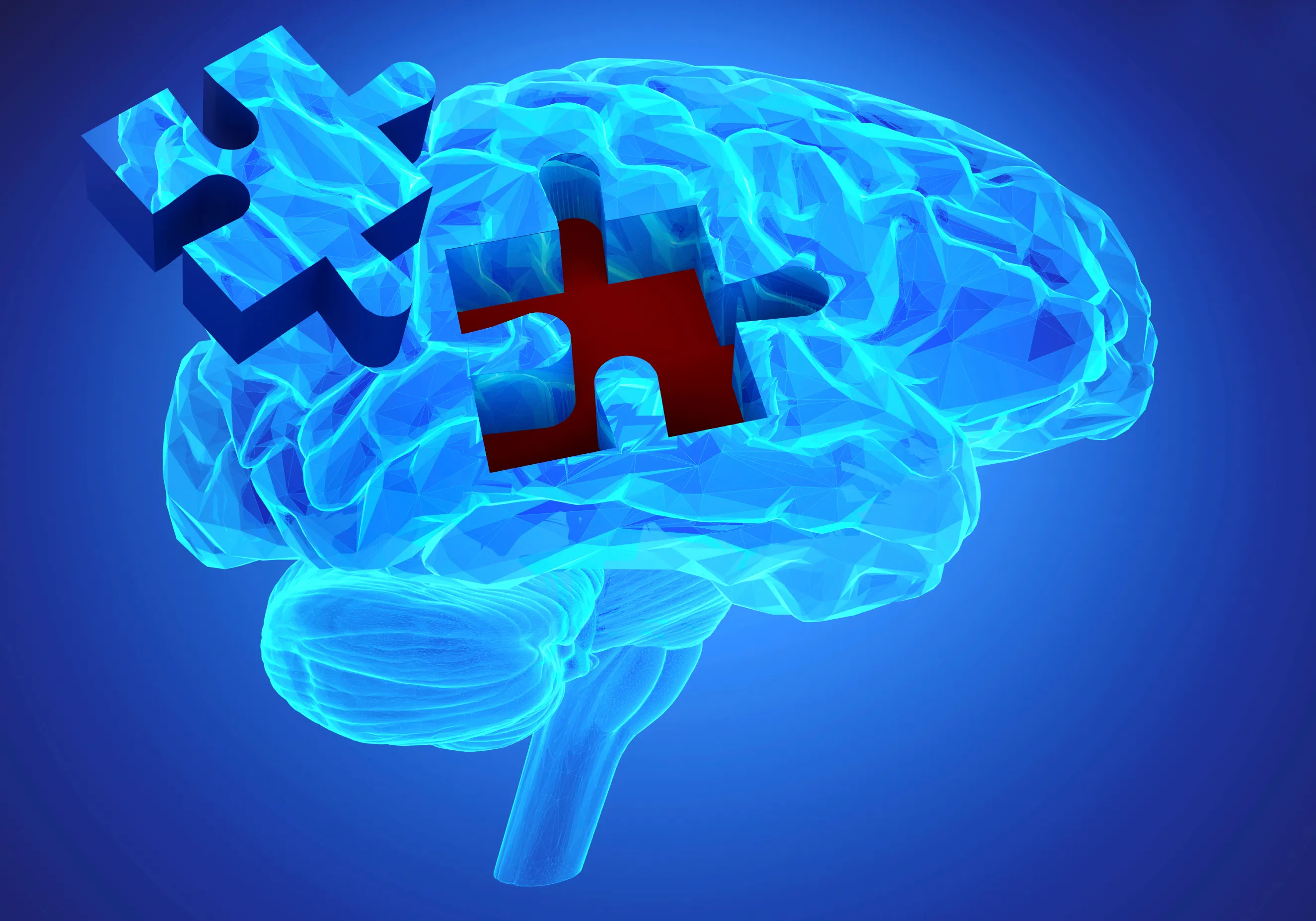Brain Loss Prevention with B Vitamins

Nowadays, a significant section of the world’s populace suffers from cognitive impairment, and a substantial number of people have dementia.
The earlier brain loss can be slowed down or stopped, the better.
Although, effective treatment for severe brain loss disorders, such as Alzheimer’s Disease (AD) is unavailable.
Extensive studies have been conducted in the name of identifying potential factors for AD and generating treatments that can reduce them.
What Risk Factors You Should Be Concerned About
According to the research, patients with AD have been reported to have high concentrations of homocysteine in their bloodstream.
Research indicates that homocysteine is an independent, strong risk factor for the development of cognitive impairment, dementia, and AD.
Also, having a homocysteine blood level that exceeds fourteen may easily double your risk. Science indicates that your body can detoxify homocysteine.
The body can achieve this by using B vitamins, including vitamin B6, vitamin B12, and folate. Interventional studies have shown that B vitamins can slow the rate of brain loss.
Irrespective of the number of studies that find a connection between high homocysteine, Alzheimer’s, dementia, or cognitive decline, a cause can only be established by interventional studies. Initially, the outcomes were quite substandard because vitamins weren’t working.
Although, the initial studies were mainly tracking neuropsychological assessments that were mostly subjective when they were compared to structural neuroimaging.
Randomized controlled trials have indicated that lowering homocysteine by B vitamins can effectively slow down brain atrophy in patients suffering from mild cognitive impairment.
As you age, your brain slowly withers, but the atrophying is more accelerated if you have Alzheimer’s.
Beneficial Effect of B Vitamins
Researchers tried giving people B vitamins for a couple of years, and they found that it slowed down the rate of brain atrophy.
According to studies, the rate of brain shrinking in people with high levels of homocysteine was significantly cut in half.
A simple, safe remedy can slow the accelerated rate of atrophying of the brain, reducing brain loss.
Further studies have shown that B vitamins reduce brain shrinking by a significantly higher percentage, especially in areas that are susceptible to Alzheimer’s.
The benefits of B vitamins for the prevention of brain loss were initially confined to patients with elevated levels of homocysteine.
This points out a relative insufficiency in one of the three B vitamins. Most people get a sufficient supply of B6 and B12, but not enough folate.
B Vitamins and Their Sources
Vitamin B12, folate, and vitamin B6 work to decrease blood levels of homocysteine. Each of the vitamins develops a coenzyme that helps in converting homocysteine into other amino acids.
Low intake of folate or B6 can significantly increase homocysteine levels, and as we have discussed elevated levels of this compound are associated with cognitive impairment and Alzheimer’s.
Given the fact that the body has considerable B12 reserves, variations of its intake rarely affect homocysteine levels in the blood.
If you consume the minimum recommended amount of dark green leafy vegetables and beans, you can drop the homocysteine levels by at least twenty percent in about a week.
The fact that B vitamins show a significant lowering of homocysteine without any supplements suggests that there is a solid mechanism in place.
Every gram of fiber may increase folate vitamin in the blood by about two percent, possibly by enhancing vitamin production.
If you consume eggs and bacon for breakfast, followed by steak for dinner, you can experience an increase in homocysteine levels in your blood.
However, eating plant-based foods long-term may not prove useful. This is so probably because they are not obtaining enough vitamin B12.
Most vegetarians can be classified as being likely to suffer from a high concentration of homocysteine in the blood.
Folate
This is an essential B vitamin, which you can find in many different foods, including:
- Fortified cereals
- Oranges and orange juice
- Asparagus
- Spinach
- Peanuts
- Papaya
- Kidney beans
- Navy beans
- Avocado
- Dried peas
- Lima beans
- Black beans
- Romaine lettuce
- Beets
- Garbanzo beans
- Turnip greens
- Spinach
- Broccoli
- Lentils
Folate has across-the-board benefits as far as preventing brain loss is concerned. It plays a vital role in suppressing the effects of homocysteine.
Vitamin B12
As you have seen, this is an essential vitamin that your body cannot manufacture on its own. Therefore, you have to obtain it from supplements or diet.
For the prevention of brain loss, you need to ensure that your diet has adequate vitamin B12 foods. Here are the twelve essential foods to consider.
- Animal liver
- Clams
- Sardines
- Beef
- Fortified cereal
- Tuna
- Fortified nutritional yeast
- Trout
- Salmon
- Fortified non-dairy milk
- Dairy products and milk
- Eggs
Vitamin B6
Recommended vitamin B6 sources that you can include in your diet are:
- Fortified cereal
- Pork
- Potatoes
- Poultry
- Milk
- Fish
- Peanuts
- Bread
- Soya beans
- Whole Grains
- Vegetables
- Eggs
B Vitamin Deficiency
Compromised brain functioning or brain loss is related to vitamin deficiencies, which is quite common in the elderly population.
This leads to the proposition that the status of B vitamins is associated with cognitive performance, dementia, and possibly AD.
Studies hypothesize the link between B vitamins deficiency as well as impairment of methylation reactions, causing brain tissue damage.
Another concept that links to B vitamin deficiency suggests that high levels of homocysteine are responsible for cognitive dysfunction.
What are the symptoms of B vitamin deficiency?
- Tingling feet or hands
- Trouble walking
- Pale skin
- Fatigue
- Fast heart rate
- Shortness of breath
- Mouth pain
- Thinking or reasoning problems
- Irritability
- Diarrhea, vomiting, nausea
- Poor appetite & weight loss
Other Things You Can Do to Prevent Brain Loss
You can slow down brain loss by changing your lifestyle in addition to consuming B vitamins foods. Here are the various things you can do.
Avoid Alcohol
A significant number of studies suggest that the consumption of alcohol could expose you to an increased risk of developing Alzheimer’s later in life.
Research indicates that heavy drinking contributes to the early onset of cognitive impairment as well as dementia diagnoses.
Most of these claims are still unclear, but earlier studies found that alcohol affects particular genes that are responsible for the regulation of inflammation in the human brain.
Optimize Vitamin D Levels with Appropriate Sun Exposure
There are strong relations between poor cognitive performance and low levels of D vitamin in AD patients.
According to researchers, optimal vitamin D levels may introduce essential chemicals into the brain, thus protecting brain cells by healing damaged neurons.
It is believed that adequate amounts of vitamin D are necessary for your immune system to function correctly to fight Alzheimer’s related inflammation.
Exercise Regularly
The facts are not conclusive, but studies indicate that exercise can significantly affect the metabolism of amyloid, helping to slow down the onset of brain loss and possibly AD.
Researchers also believe that physically active people have a reduced chance of experiencing brain loss.
Regular exercise keeps you thinking, learning new skills, improving memory, and ultimately delaying the onset of brain damage, especially for people who are at high risk of developing AD.
We believe that additional research is required to establish all the benefits of exercise in the fight against brain loss.
But at the moment we advise you to include exercise in your lifestyle as you use B vitamins for the prevention of brain loss.
